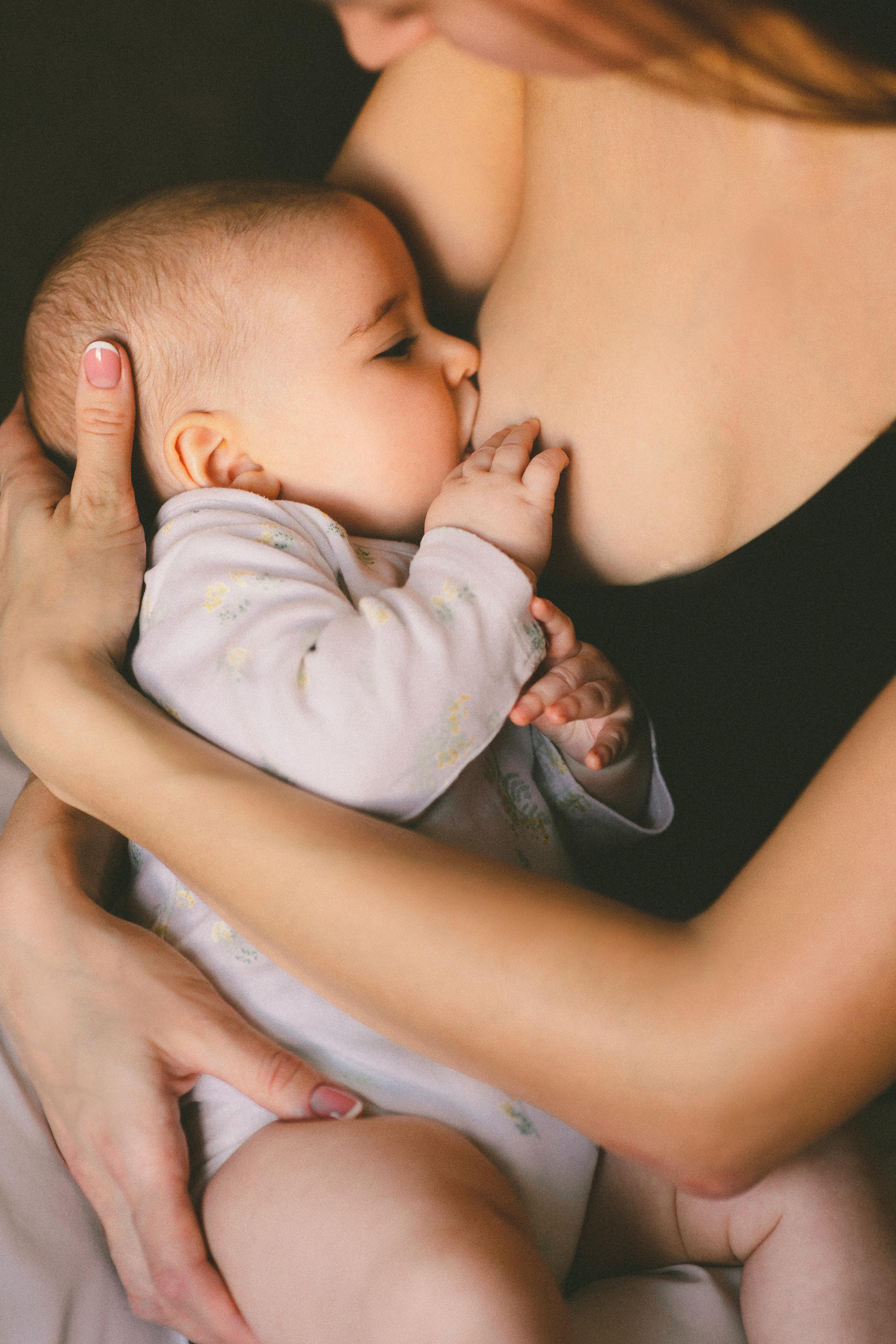To mark International Breastfeeding week, Debra Hennessy, IBCLC, Family Nursing and Home Care (FNHC), and Deborah McCoy, Infant Feeding Specialist Midwife, Health for Community Services (HCS), have collaborated on a series of blog posts to celebrate the week.

Many of the common problems experience in the early days of breastfeeding are caused by poor latch and are easily corrected with small changes to positioning and attachment.
If the latch is not quite right, it can cause painful feeds for the mother who may experience pinched or cracked nipples, which can be an entry pathway for bacteria. The baby will not be able transfer optimal volumes of milk causing them to be fussy after feeds, wanting to feed more often, have poor weight gain, and decreased wet and soiled nappies.
Poor latch may also cause a decrease in overall breastmilk production as the mother’s body down regulates its supply in response to inadequate removal of milk. Poor removal may also cause blocked ducts, engorgement or mastitis.
Sore nipples
Most breastfeeding mothers will experience a degree of discomfort when they first start breastfeeding. However, sharp pain during feeds is an indication of poor latch. Delatch your baby and look at the shape of your nipple, if it is pinched or ‘lipstick’ shaped this indicates that the latch is shallow. Try not to endure painful feeds as this may lead to cracked nipples which could cause a more severe infection leading to early weaning. Talk to your midwife or health visitor who may be able to help you improve your latch and make feeding more comfortable for you both.
Blocked ducts
Blocked ducts are a common problem which can be caused by poor latch and ineffective milk removal. Your baby being sleepy at the breast or having a restriction to their tongue movement can cause poor milk transfer. Sometimes an over abundant milk supply may be the cause or a tight fitting bra putting pressure on the breast tissue. Whatever the cause, continue to breastfeed, apply warm compress prior to feeding, massage the breast over the site of the blockage and try changing the position of your baby to allow him to clear the blockage naturally.
Engorgement
Every new mother will have the sensation of fullness when their milk first comes in and as milk production regulates to the baby’s ability to remove the milk from her breasts. To prevent engorgement breastfeed early and often be responsive to your baby’s cues. Allow your baby to feed completely from one side before offering the other, check latch and attachment, monitor your baby’s urine and stool output as an indicator of effective feeding.
The best treatment for engorgement is again early and frequent breastfeeding. Sometime a warm compress to the breasts before feeding can help. The most important thing is to ensure correct positioning and alignment to achieve a deep latch. Sometimes massage and gentle compression during feeds may help. Do avoid aggressive deep tissue massage which can damage breast tissue.
If needed, hand expression or pumping until comfort is achieved, is useful but we would caution against overstimulation of the breasts which can worsen the condition.
Over the counter pain killers such as ibuprofen may help with pain and swelling as well as a cool compress to the breast after feeds.
Mastitis
Mastitis is an inflammation of the breast which may or may not involve bacterial infection. It can be caused by ineffective milk removal and untreated engorgement.
When a bacterial infection is involved, this can be as a result of infection tracking from an entry pathway, such as a cracked nipple.
To prevent Mastitis from occurring, it is important to treat engorgement as outlined previously with frequent and effective removal of milk and ensuring correct positioning and attachment of baby.
In addition, avoid pressure on the breasts and reduce stress and fatigue if possible.
If you do develop mastitis it is important to continue to feed, apply warm compresses to the breast prior to feeding, begin to feed on the affected side, bed rest, increase fluids and pump if necessary for complete drainage.
See your doctor if symptoms are not improving within 12-24 hours or if fever develops, you experience cold chills or body ache as you may need antibiotics.

If you are pregnant and would like to know more about breastfeeding, contact your community midwife.
Baby Steps is a perinatal education programme run by Family Nursing and Home Care that will help you prepare you to get breastfeeding off to a great start.
There are also breastfeeding support groups and clinics to help you once your baby arrives if you need any additional help or support.
Contact the Duty Health Visitor on 01534 449135 to find out more about Breastfeeding Buddies or the Community Midwives Breastfeeding Clinic on 01534 449139 / 449190
 blog.gov.je
blog.gov.je